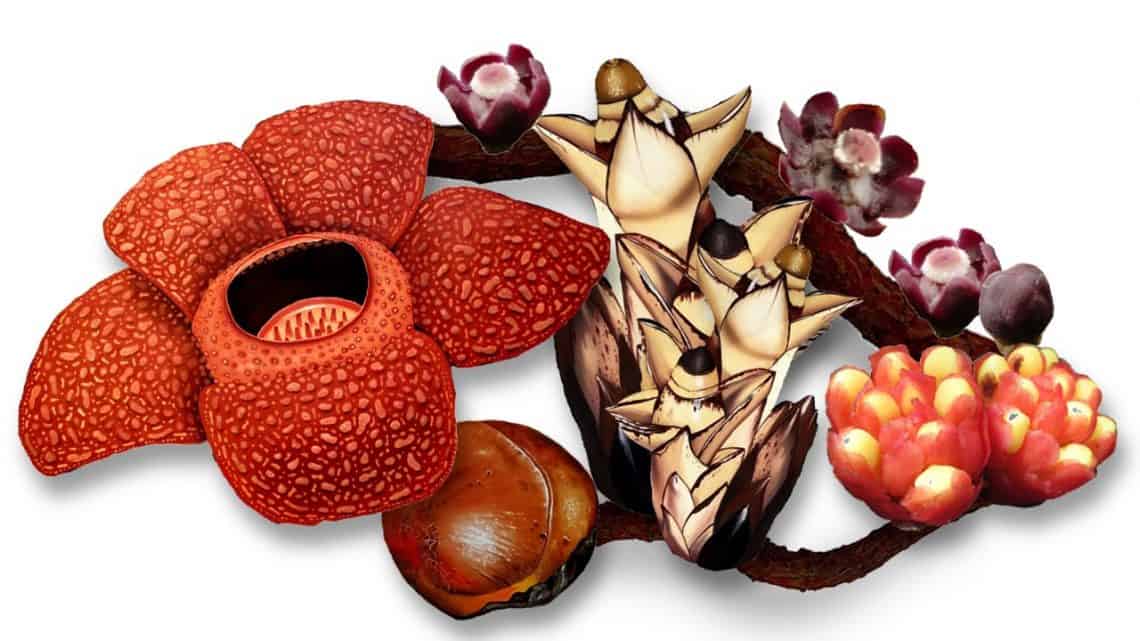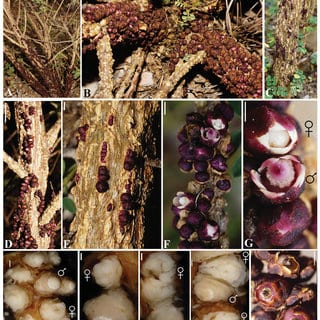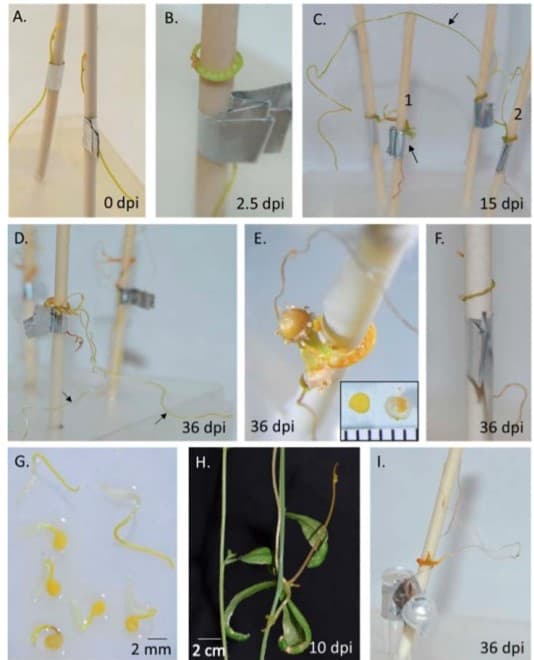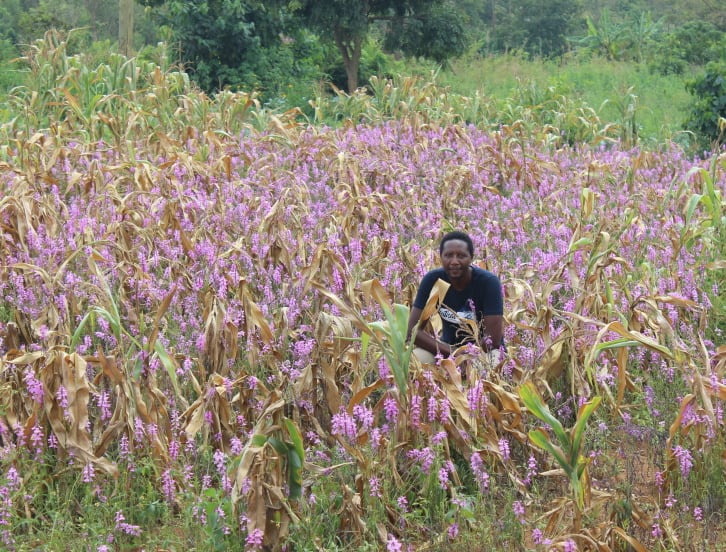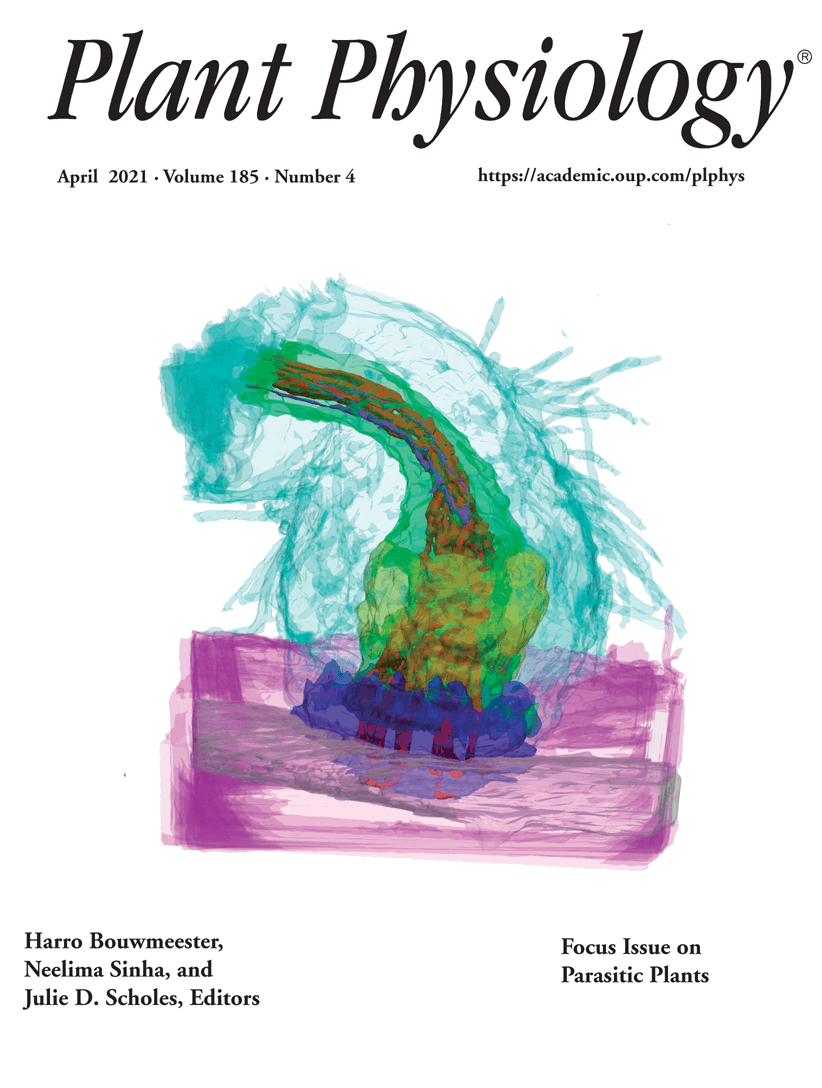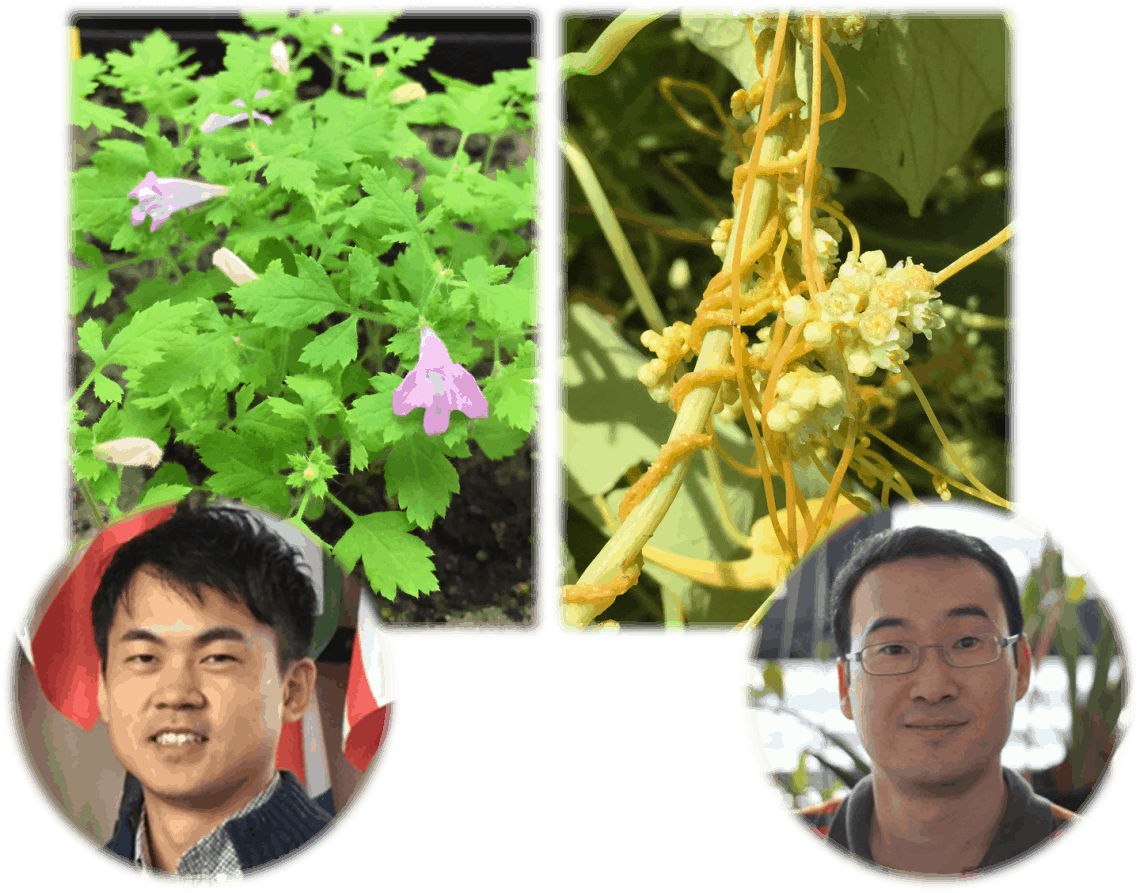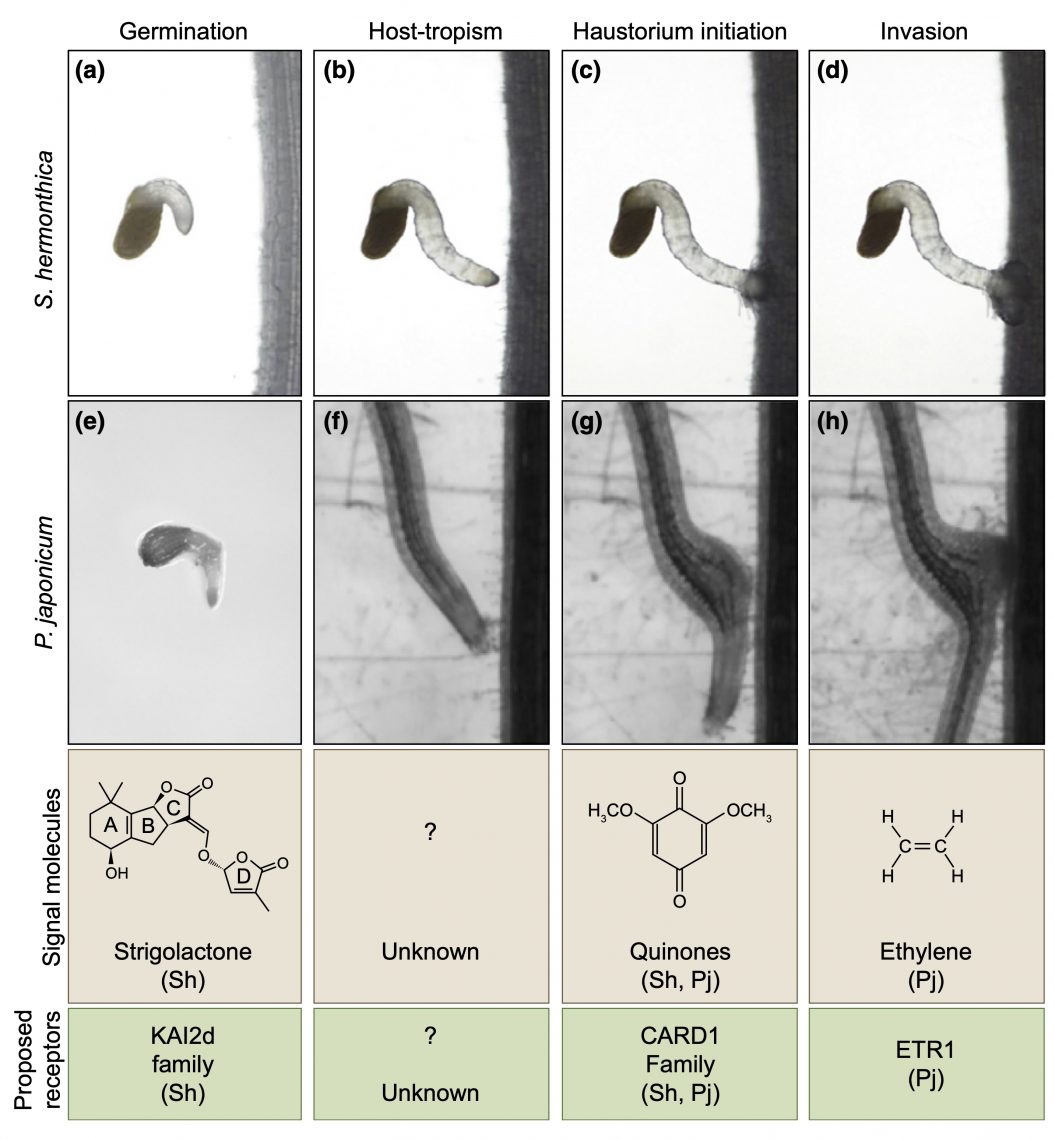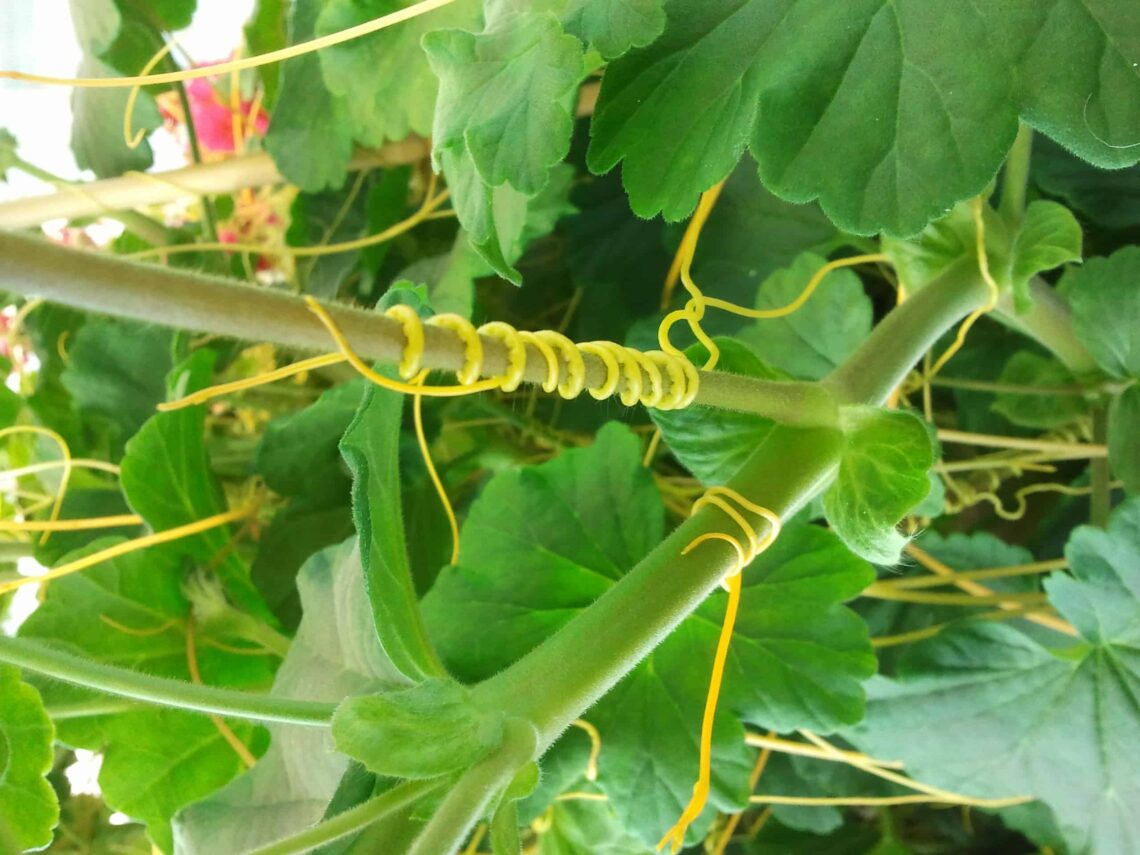Endoparasitic plants are the most reduced flowering plants, spending most of their lives as a network of filaments within the tissues of their hosts. Despite their extraordinary life form, we know little about their biology. Research into a few species has revealed unexpected insights, such as the total loss of plastome, the reduction of the […]
Endoparasitic plants and fungi show evolutionary convergence across phylogenetic divisions
